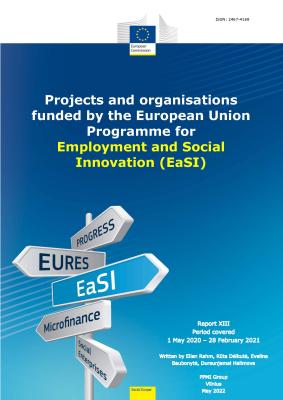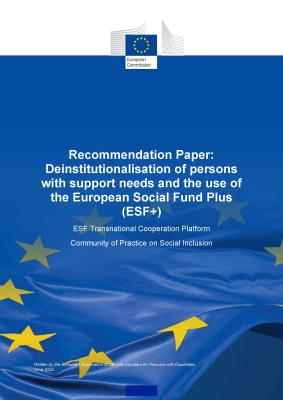This section allows you to
- search publications by subject, keyword, publication date or type
- order the publications you are interested in by contacting us or through EU Publications, the online catalogue of publications of the European institutions
Filter by
Publications (208)
RSS
This report presents examples of 19 projects supported by the Programme for Employment and Social Innovation (EaSI). It also highlights the support to 11 major EU-level Non-Governmental Organisations active in the promotion of social inclusion, poverty reduction and access to finance.

The European Code of Good Conduct for Microcredit Provision defines a unified set of standards for the microfinance sector in Europe. It serves as a self-regulation tool and a quality label for microfinance institutions committed to ethical finance.
The report explores how 35 European countries monitor social spending through dedicated national frameworks, and investigates the processes assessing the outcomes and effectiveness of public social spending.
This report provides an annual overview of key employ-ment and social developments in the European Union, and of Member States’ recent policy measures, in line with the Guidelines for the Employment Policies of the Member States

The report discusses the importance of Trans-European mobility in EU education policy, particularly through programs like Erasmus and Erasmus+.
This report aims to evaluate the effectiveness of FEAD programs implemented between 2014-2020, identifying good practices that can be replicated in the future.
This toolkit recommends seven strategic steps to follow in support of scaling-up of social innovations. The seven steps are inspired by a range of European and other research projects, practical experiences, European Union (EU) policy acquis, and dialogue about research, practice and policy.

This paper addresses some of the specific objectives of the ESF+ under Article 4 of the regulation, in particular access to education and training, active inclusion, integration of marginalised communities and access to services.

This paper summarises the experiences of ESF managing authorities and intermediate bodies in developing projects, calls and programmes for providing financial aid to support employer engagement in work-based learning and apprenticeships.
The objectives of the initiative are to support Member State reforms to close gaps in existing support systems so that all adults have access to support for training, and to increase the incentives and motivation of individuals to seek training.
